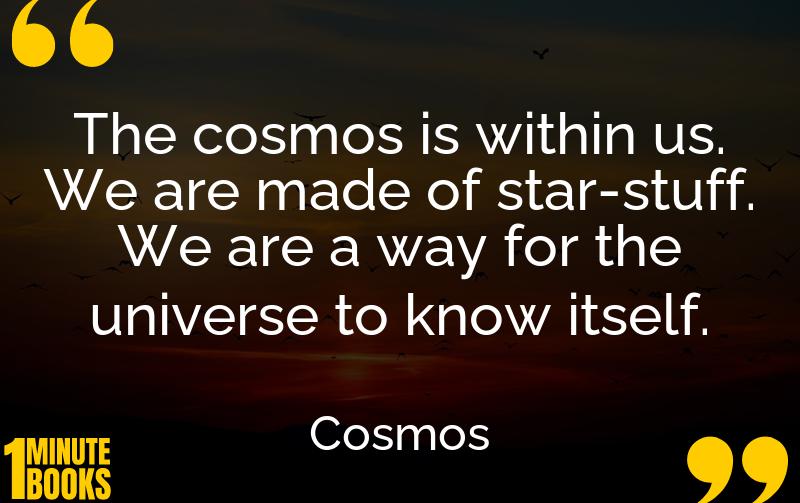
Cosmos explores the universe through science and philosophy, tracing humanity’s scientific evolution while encouraging curiosity and responsibility for our technological progress.
Main Lessons
- The interconnectedness of the universe and our everyday lives highlight that we are made of star-stuff.
- Understanding our cosmic insignificance through tools like the cosmic calendar emphasizes the brevity of human existence.
- Exploring the possibility of extraterrestrial life triggers both curiosity and introspection about our place in the cosmos.
- Sagan stresses the importance of scientific inquiry and skepticism in expanding our knowledge.
- The book honors historical figures like Kepler and Newton for their contributions to the scientific advancements.
- Sagan warns of the potential dangers of misused technology in an age of nuclear weapons, urging responsibility.
- Cosmic perspectives advocate for unity beyond national, religious, and cultural barriers.
- The Pale Blue Dot serves as a reminder of Earth’s fragility and the need for global cooperation.
- Sagan encourages readers to embrace curiosity as a driving force for personal and scientific growth.
- Cosmos highlights our role as a ‘way for the universe to know itself’, promoting a deeper understanding of our existence.








